Oxford’s medical history is a complex narrative filled with both pioneering research and unsettling ethical dilemmas. From devastating epidemics to controversial dissections, the city’s past reflects the evolving, often uncomfortable, relationship between the pursuit of knowledge and its societal implications. This walking tour invites visitors to confront Oxford’s multifaceted legacy, examining the university’s role in shaping public health policies and medical practices. As participants uncover the nuances of this history, they’ll be challenged to reconsider preconceptions about one of the world’s most renowned academic institutions.
This experience made our list of the 25 Best Tours In Oxford.
Key Points
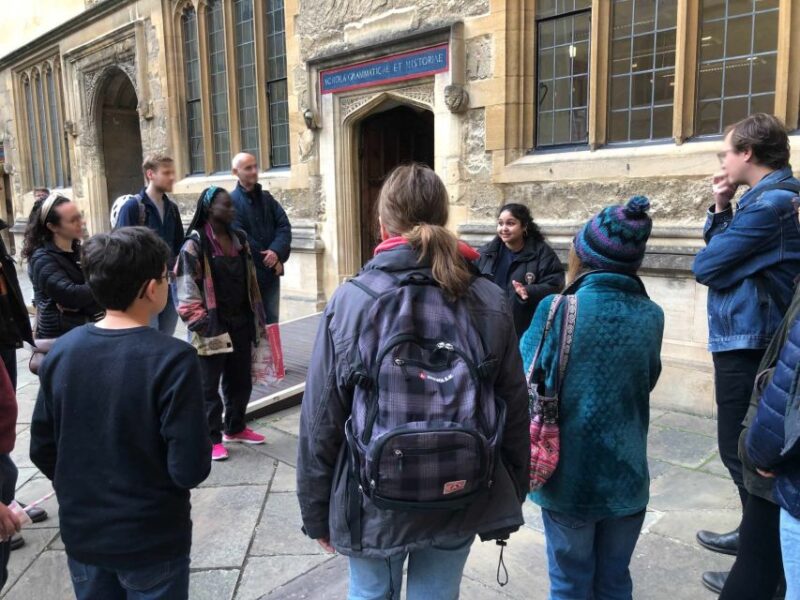
- Explore the dark history of medical ethics at Oxford, from non-consensual body dissections to the exploitation of vulnerable populations for research.
- Examine the complex debates surrounding public health policies and their impact on individual liberties during epidemics like the Black Death.
- Understand the university’s pioneering work in anatomy, physiology, and emerging medical fields, and the societal implications of its research.
- Investigate the tensions between the university and the broader community over the need for cadavers and the religious opposition to dissection.
- Reflect on the shifting societal attitudes towards medical ethics and the protection of human subjects in Oxford’s medical history.
Epidemic Disease in Medieval Oxford

Oxford was no stranger to epidemic disease during the medieval era, with frequent outbreaks of bubonic plague, smallpox, and other deadly illnesses ravaging the city and its population.
The tour explores how these epidemics shaped the city’s history, from the devastating Black Death pandemic that killed up to half of Oxford’s residents in the 14th century to the introduction of quarantine measures and public health policies.
Participants will learn about the University’s role in medical research and the complex ethical debates that arose around disease control, which often conflicted with individual rights and freedoms.
The tour provides a thought-provoking look at how epidemic disease has profoundly influenced Oxford’s past.
If you're enjoying exploring Oxford on foot, you'll love these other walking tours we recommend
Anatomy Dissections at the University
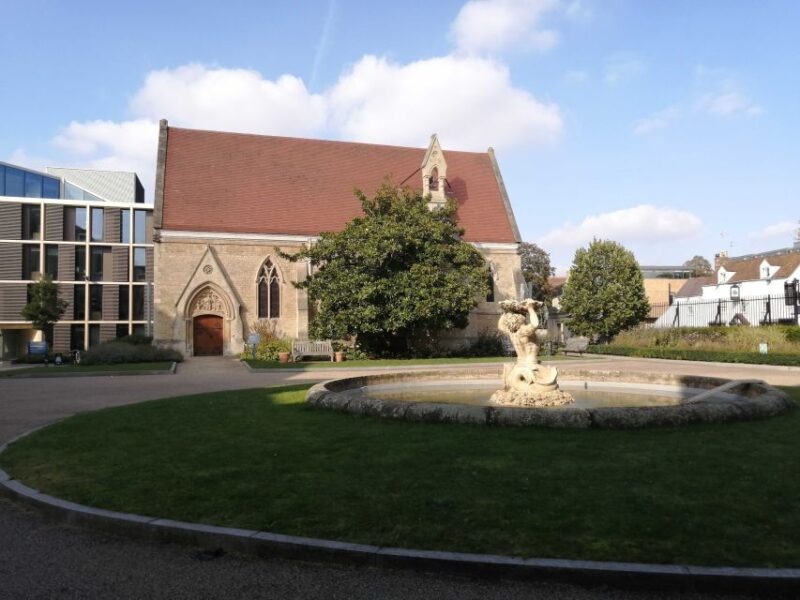
Alongside the city’s struggles with epidemic disease, the University of Oxford also grappled with the contentious history of anatomy dissections, which became a crucial component of medical education and research.
The practice was often met with public outcry and religious opposition, as dissecting human bodies was considered sacrilegious. However, Oxford’s anatomists persisted, seeking to advance the understanding of human physiology.
This led to tensions between the university and the broader community, as the need for cadavers clashed with social and ethical concerns. Despite the controversies, anatomy dissections remained an integral part of Oxford’s medical curriculum, shaping the trajectory of medical knowledge and practice in the centuries to come.
Public Health Policies and Individual Rights
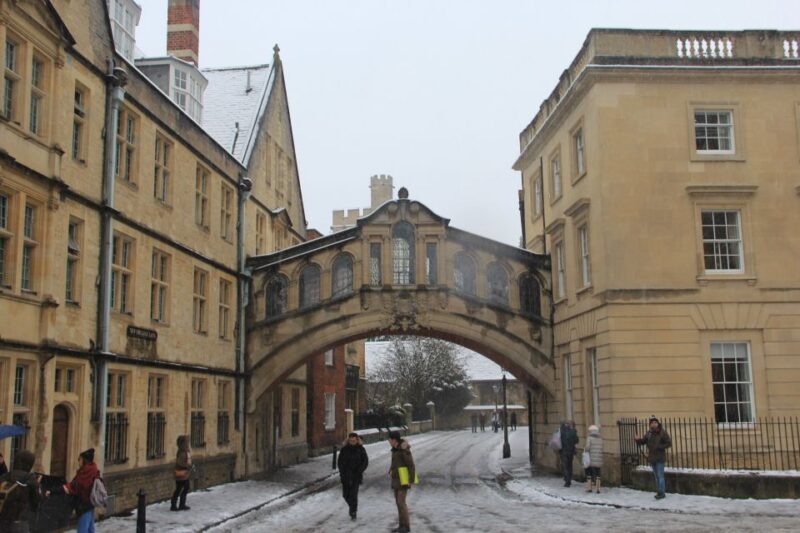
As the University of Oxford pursued advancements in medical research, the implementation of public health policies often collided with individual rights, sparking complex debates that echoed through the centuries.
The university grappled with balancing the greater good of public health with personal freedoms, such as:
- Compulsory vaccination policies that faced resistance from those wary of government overreach
- Quarantine measures that restricted individuals’ movements during outbreaks
These tensions highlighted the nuanced and delicate nature of navigating public health concerns and individual liberties, shaping the evolving landscape of medical research and practice at the University of Oxford.
Debates over the ethics of human experimentation in medical trials and discussions around the state’s role in regulating private medical practices further contributed to the complexity of these issues.
Medical Research at the University
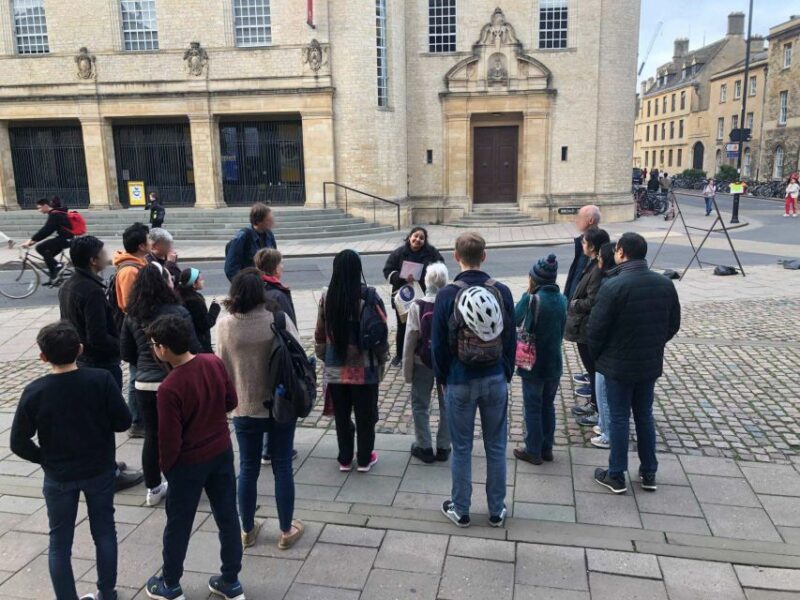
The University of Oxford has long been at the forefront of groundbreaking medical research, contributing invaluable insights and advancements to the field.
Over the centuries, Oxford’s researchers have pushed the boundaries of scientific understanding, from pioneering work in anatomy and physiology to cutting-edge investigations in emerging areas like genetics and biotechnology.
This rich legacy of medical discovery hasn’t been without controversy, as the tour will explore. Ethical debates and public scrutiny have often accompanied the university’s research endeavors, reflecting the complex and sometimes uncomfortable relationship between the pursuit of knowledge and its societal implications.
Yet, Oxford’s role as a hub of medical innovation remains undeniable, making it a compelling subject for this walking tour.
More Great Tours NearbyUncomfortable Realities of the Past
Riddled with controversy, Oxford’s medical history has long grappled with uncomfortable realities from the past. Practices that today would be considered unethical, such as non-consensual dissections and experimentation on the marginalized, were once commonplace within the hallowed halls of the University.
This tour explores:
-
The complex history of anatomy dissections, where the bodies of the poor, homeless, and criminals were often utilized without consent.
-
The tensions between public health policies and individual rights, as Oxford played a central role in developing quarantine and isolation measures.
-
The University’s involvement in the exploitation of vulnerable populations for medical research, including women, minorities, and the mentally ill.
-
The shifting societal attitudes towards medical ethics and the protection of human subjects over time.
Fascinated by Oxford's past? More historical tours we've covered
- Oxford: Private City Tour & University Historical Highlights
- Oxford: Quirky Self-Guided Smartphone Heritage Walks
- University and City Historical and Architectural Walking Tour
- Oxford’s Architectural Gems: A Historic Walk
- Reformation Oxford Christian History Tour Private Groups
- 8-Hour Private Historical Tour of England in a Classic Car
Exploring Complex Medical Histories
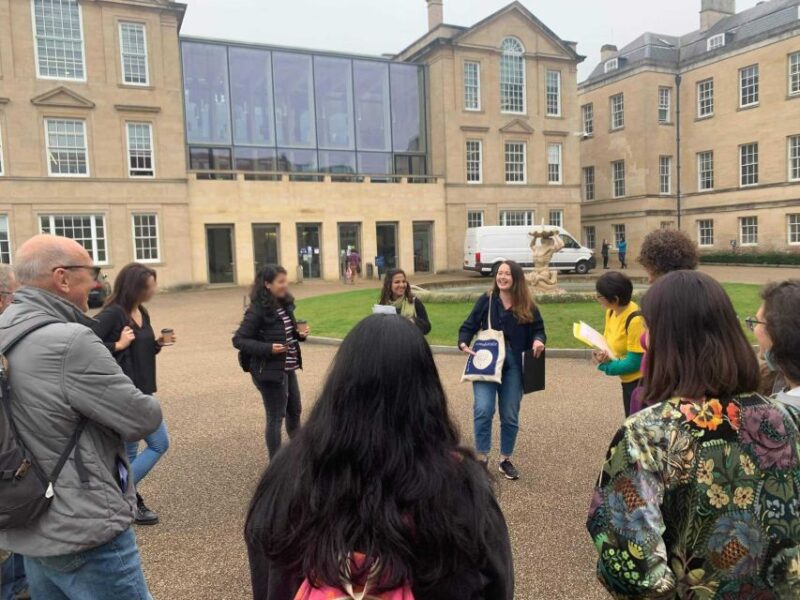
Delving into Oxford’s complex medical history, this tour examines the University’s central role in developing groundbreaking yet ethically fraught practices, from non-consensual anatomy dissections to the exploitation of vulnerable populations for medical research.
Participants will explore the tensions between scientific progress and individual rights, gaining insight into the university’s pioneering contributions to fields like epidemiology and physiology.
The tour scrutinizes the complex legacies of renowned Oxford figures like William Harvey, whose revolutionary discoveries in human anatomy were built upon the bodies of the poor and marginalized.
Challenging Preconceptions About Oxford
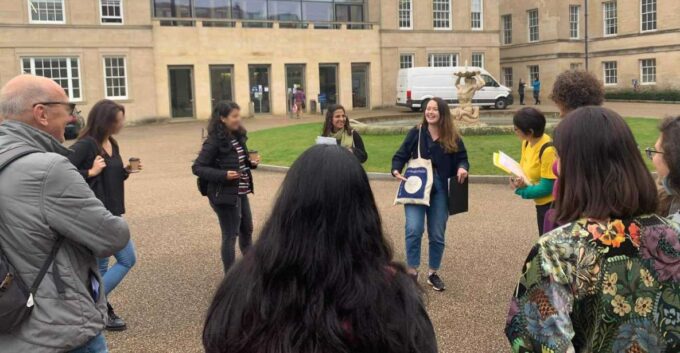
This walking tour challenges preconceptions about Oxford’s medical history by illuminating its complex, and at times uncomfortable, realities.
Participants will explore how the university’s pioneering work in fields like epidemiology and physiology was often built upon ethically fraught practices, such as the non-consensual use of bodies for anatomy dissections.
Throughout the tour, visitors will:
- Uncover the tensions between public health initiatives and individual liberties
- Examine the university’s role in controversial medical experiments
- Discuss how societal attitudes towards disease and anatomy impacted research
- Reflect on the lasting consequences of Oxford’s complicated medical legacy
Thought-Provoking Insights for Visitors
As visitors embark on this Uncomfortable™ tour, they’ll uncover a thought-provoking exploration of Oxford’s complex medical past, challenging them to reconsider preconceptions and grapple with the ethical dilemmas that have shaped the university’s pioneering work in fields like epidemiology and physiology.
They’ll explore the tensions between public health policies and individual rights, as seen in the university’s history of controversial anatomy dissections.
The tour also examines the university’s role in groundbreaking medical research, inviting participants to consider the moral quandaries that have arisen alongside scientific advances.
Recap
This walking tour offers a nuanced exploration of Oxford’s medical history, confronting the university’s complex legacies.
Participants will grapple with the city’s challenging realities, from devastating epidemics to ethical debates surrounding dissections and experimentation.
By examining the pursuit of knowledge and its societal implications, the tour provides thought-provoking insights into the uncomfortable, yet influential, aspects of Oxford’s medical past.
You can check availability for your dates here:More Walking Tours in Oxford
More Tours in Oxford
More Tour Reviews in Oxford
- Walking Tour Combined With River Punting Rowing (3 Hours Duration)
- Famous Alumni Quest Experience in Oxford
- Blenheim Palace Guided Tour (With or Without Additional Tour of Oxford City)
- Oxford University Private Walking Tour With a Professional Guide
- Oxford: City, Universities and Pubs Walking Tours
- Blenheim Palace Tour App, Hidden Gems Game and Big Britain Quiz (1 Day Pass) UK
Not for you? Here's more things to do in Oxford we have recnetly reviewed
- 15 Best Cruises And Boat Tours In Oxford
- 2 Best Food Tours In Oxford
- 3 Best Lunch Experiences In Oxford
- Oxford Historic City Walking Tour – Oxbridge Tours
- Operation City Quest Scavenger Hunt – Reading, UK
- Oxford Self-Guided Tour and Exploration Game: The Watch Thief
- Oxford Ghost Tour – for Private Hauntings Only!
- Ghost Tour of Oxford
- Oxford Quest: Self Guided City Walk & Immersive Treasure Hunt
- Oxford’s Architectural Gems: A Historic Walk
- Zombie Scavengers Game – High Wycombe, UK
- Oxford Scenic Cycle Tour- 2 Persons Minimum Summer Season
